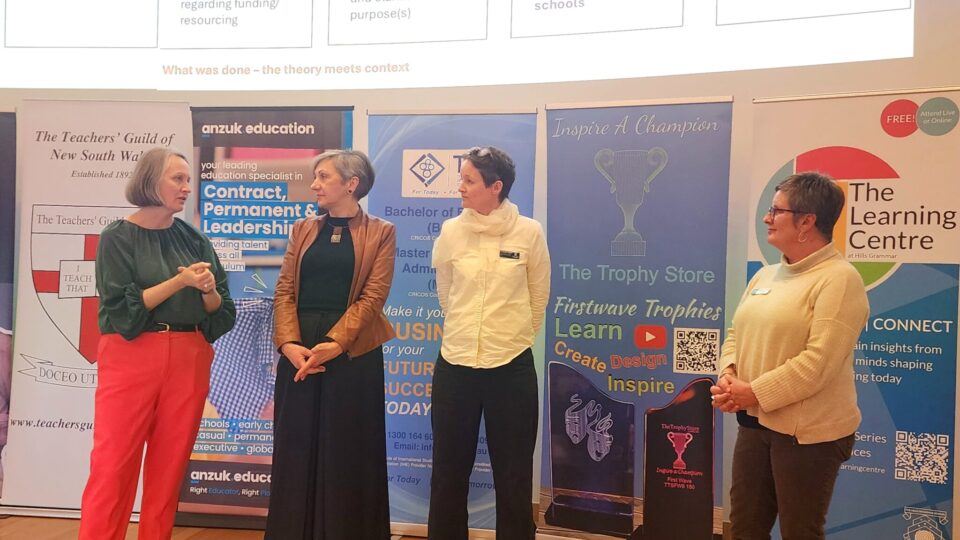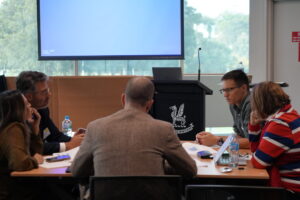
Navigating complexity with Associate Professor Simon Knight
A small team of experienced teachers from Pymble Ladies’ College participated in an excellent example of cross-school and school-university collaboration with Associate Professor Simon Knight from the Transdisciplinary School at the University of Technology Sydney and colleagues from Newington College, Trinity Grammar School and PLC Sydney.
Associate Professor Knight is a co-founder of CREDS at UTS, the Centre for Research on Education in a Digital Society, and was awarded an Australian Research Council Discovery Early Career Research Award (ARC DECRA) Fellowship in 2023. Simon worked with the research leads from Pymble Ladies’ College (Dr Sarah Loch), Newington (Dr Britta Jensen), Trinity Grammar School (Dr Kimberley Pressick-Kilborn) and PLC Sydney (Dr Suzana Sukovic) in late 2024 to design a series of social labs for experienced teachers to explore the tools they use in navigating complexity and uncertainty in the classroom with secondary students.
The social labs involved Pymble Ladies’ College teachers, Ms Caragh Warth (Head of Learning Area Society, History and Ethics); Mrs Kerryl Howarth (Director of Professional Learning); Mrs Pearl Thomas (Religion and Ethics teacher) and Mrs Nikki Wyse (Head of Senior School) and brought together teams from the four schools involved. The social labs were an excellent example of inter-school collaboration and thanks go to Trinity, PLC Sydney and Newington for hosting the gatherings.
At the recent NSW Teachers’ Guild conference, Sarah, Britta, Suzana and Kimberley discussed the nature of the school/university partnership in a presentation entitled, ‘Research partnerships that provoke professional learning opportunities: An approach to engaging multiple schools in a collaborative project’.
A leading teacher in the Pymble Ladies’ College Religion and Ethics team, Pearl Thomas reflected on the experience:
The workshop offered the rare privilege to sit with educators from different schools and disciplines and look at the shape of these big epistemological questions. How do we gently and wisely guide our students to navigate the inherent chaos and uncertainties of the hyper evolving information economy? How do we model a spirit of adventurous enquiry when all the greater market forces ground us as teachers to be just efficient operators who fixate on content expertise? How do we model respectful disagreements in a democratic classroom where the world outside is polarising by the second? And, how do we attempt all this from a place of care for our students to instil in them greater agency and better skillsets to navigate a post-truth world which is overwhelmingly algorithmised.
Photo credit: Newington College
Learning from the partnership includes identification of the productive tension between research and professional learning, and the generosity and responsiveness of all involved which created a culture of collaboration.



